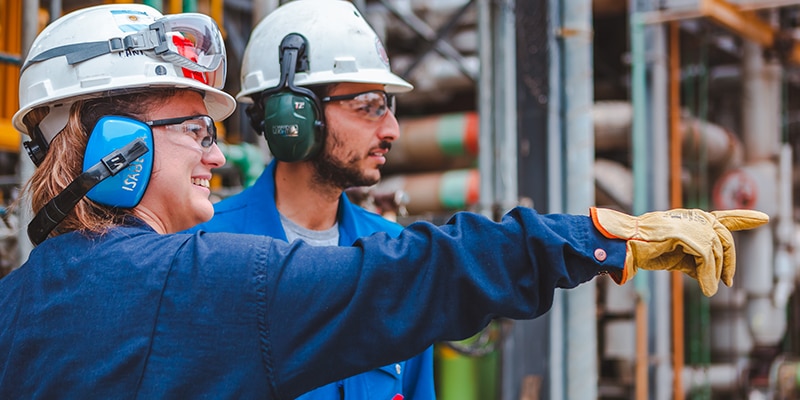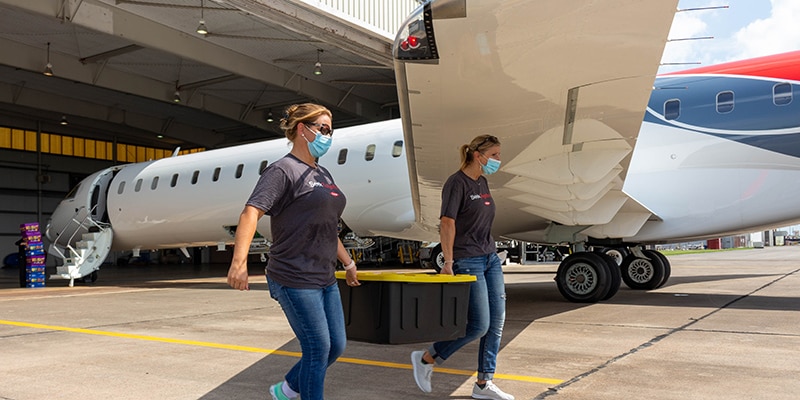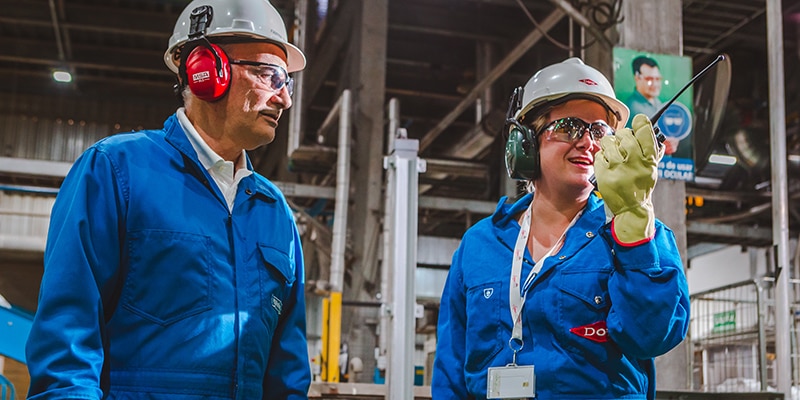
We’re all in this together: Supporting Mental Health
It would be an understatement to say that the COVID-19 pandemic has been devastating. One of the most long-lasting impacts may be the effect on mental health. According to the United Nations: “The mental health and wellbeing of whole societies have been severely impacted by this crisis and are a priority to be addressed urgently.”1
OPPORTUNITY
October 10 is World Mental Health Day, where the focus is on “moving forward together.” Mental health often has been an issue people were reluctant to talk about – at work and at home. If there has been any silver lining in the pandemic cloud, it may be that mental health is now more openly spoken about in many more sectors of society. In the workplace, mental health has catapulted to the top of many employees’ lists of concerns.
Mental health awareness and peer support brings so many benefits. First and foremost, mental support improves health and safety of our employees – and safety is our top priority. Workplaces that promote mental well-being and support people with mental illnesses also are more likely to reduce absenteeism and increase productivity, according to the World Health Organization.
A DIVERSITY OF SOLUTIONS
Dow’s approach to mental health aligns to our Total Worker Health® and Inclusion approach. Our strategies to improve our employees’ wellbeing are comprehensive and include psychological safety2 training, recognition, ongoing employee communications, access to occupational health services, employee resource groups (ERGs), mentoring and flexible work arrangements. Dow’s approach to Total Worker Health is part of Dow’s 2025 Sustainability Goals, one of the four components of the World-Leading Operations Goal.
Let’s look at some mental health services that Dow is offering in order to address mental health in the workplace.
Psychological safety program launched
In 2020, Dow’s Occupational Health team launched psychological safety training for leaders and employees. Among the goals of these sessions is to begin an honest discussion of the meaning and value of psychological safety and how leaders and co-workers can foster an environment in which we can all thrive. Sessions are interactive and include action steps which teams and individuals can take. A psychologically safe workplace begins with a feeling of belonging. It is a workplace where it feels safe to learn, to share, to challenge the status quo – an environment where our people will thrive and will make their best contributions.
Employee Resource Groups create community
In March 2020, nearly two-thirds of Dow’s workforce went virtual because of the pandemic. For many employees this was incredibly isolating. Dow’s 10 Employee Resource Groups (ERGs) held virtual forums that dealt with topics such as hidden disabilities, social injustice, mental wellness, resilience, coping with stress, home office ergonomics and more. The purpose of these sessions was to create a sense of community among a far-flung workforce suddenly separated and to welcome our new Dow employees hired during the pandemic. Some ERGs hosted leader-led townhalls for employees and community members where medical staff spoke about COVID-19. Other topics covered mental health awareness and flexible work arrangements.
Mental health resources
When it comes to mental health, there are many things people can do themselves, but there are a lot of initiatives an organization can – and should – take to best protect the mental well-being of employees. Some of our additional activities and resources to support our employees’ mental health include:
- Dow’s Employee Assistance Program – available to every employee and his or her dependents in each country Dow is present.
- A global healthy culture index, with an annual assessment and site-based action planning.
- Mental health parity in U.S. health care benefits.
- Various leave options for stages of life or personal needs, in addition to traditional holiday and vacation programs.
- Global substance use policy.
- Stress/resiliency and depression leader training.
- Energy management and purpose programs.
- A comprehensive summary of resources for employees and leaders to navigate mental health from staying strong to, “it’s OK to not be OK” and managing mental health illness is available for many of the countries in which we operate.
We understand there is no one-size-fits-all approach to mental health. That’s why we are committed to providing an array of support for our people and evolve our mental health services as needed. We recognize that reducing mental stress and anxiety at work and cultivating a psychologically safe environment are critical to ultimately create a more positive work culture for all – helping us thrive and move forward both as individuals and as a company. It is a journey we embark on.
Learn more about Dow’s approach to advancing a culture of employee health and wellness in our latest ESG Report.
1 https://www.un.org/sites/un2.un.org/files/un_policy_brief-covid_and_mental_health_final.pdf
2 The 4 Stages of Psychological Safety: Defining the Path to Inclusion and Innovation, Berrett-Koehler Publishers, 2020





